Voltage gain of an amplifier is defined as
"magnitude of output voltage / magnitude of input voltage"
OR
"Vout(r.m.s)/Vin(r.m.s)"
OR
"change in output voltage/change in input voltage"
In the figure given below they say that the by using bypass capacitor C2 which is by passing R(E) increases the gain because now the input signal by passes R(E) and so the signal faces less resistance than if R(E) is not by passed.
But what i am not understanding is that when by pass capacitor is used then magnitude of the input signal is increased but at the same time magnitude of the out put signal will also increase.
And
If magnitude of input signal decreases then the magnitude of out put signal also decreases and as gain is the ratio of output to input signal so the gain will not remain constant whether R(E) is by passed or not ? as both output voltage and input voltage are increasing and decreasing simultaneously then how the voltage gain is increased by bypassing the R(E) ?

